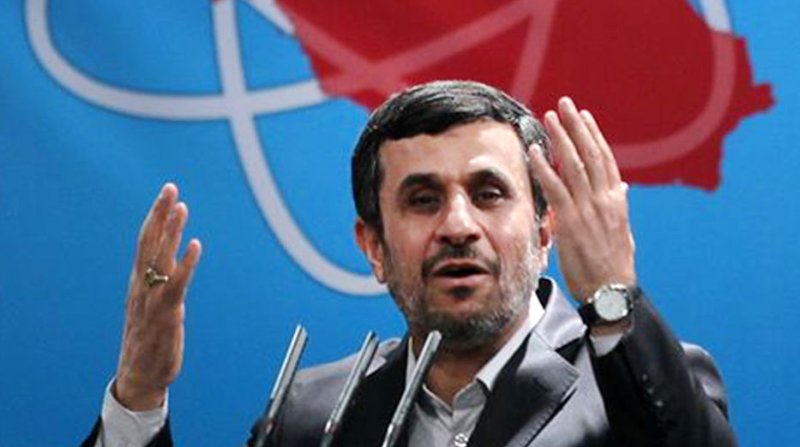Iranian President Mahmoud Ahmadinejad delivers a speech during Iran's Nuclear Technology Day in the Presidential Palace in Tehran, Iran on April 8, 2012. UPI/President.IR |
License Photo
LONDON, April 12 (UPI) -- As the world's major powers prepare to discuss Iran's nuclear program, experts are arguing the legality of a potential Israeli and U.S. military strike on Iran.
Anthony D'Amato, a professor of international law at Northwestern University, has said the use of force by Israel and the United States to prevent Iran from obtaining nuclear weapons would uphold international law, Britain's The Guardian reported Thursday. The United Nations charter recognizes the right to self-defense in the event of an imminent attack, though some experts wonder at the precise meaning of word "imminent," the newspaper said.
"Iran says it wants to push the Israelis into the sea and that they are constructing nuclear weapons. That's enough for me to say that cannot be allowed. If the U.S. or Israel takes the initiative to block that action, it can hardly be said to be violating international law. It can only be preserving international law for future generations," he said.
Bruce Ackerman, a constitutional law professor at Yale, said he's skeptical about the claim of imminent threat.
"The idea that the United States is under imminent threat from Iran is preposterous. It is not preposterous that Israel's under threat from Iran. It just isn't imminent," he told The Guardian.
"Similarly, this is not a case having to do with the war on terror. It's a case in which one sovereign feels threatened by another sovereign. It's just the kind of thing that has been happening for a very long time and it was precisely this kind of anticipatory anxiety generating wars that the League of Nations and then the United Nations was intended to respond to," he added.
Meanwhile, The Washington Post reported representatives of the United States, Britain, China, France, Germany and Russia gathered in Istanbul, Turkey, for nuclear talks are not all on the same page when it comes to determining the best way to keep Iran in check.
"We really do not have a common view of what's the real offer to be made to Iran to bring it to serious negotiations," Russian Deputy Foreign Minister Sergey Ryabkov said while in Washington this week.
Ryabkov said the six nations do agree it would be "disastrous" for Israel to conduct a military strike against Iran.
"We are all for a diplomatic solution," he said.
An unidentified senior U.S. official was among diplomats who downplayed the differences of opinion among the various players.
"All are in agreement on the core principles," the U.S. official said.















